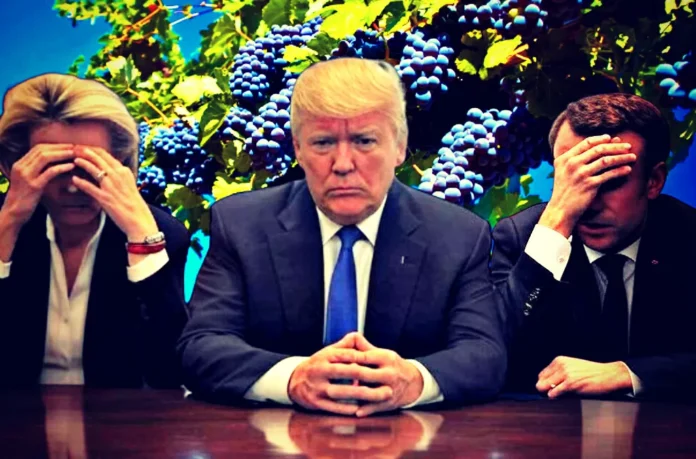In a bold and unprecedented move, President Trump announced on Wednesday that he would be imposing a 200% tariff on European wine and champagne. This dramatic escalation of trade tensions comes in response to the EU’s recent decision to impose levies on American whisky, and has raised serious questions about the future of transatlantic relations.
The decision by the European Union to impose levies on US whisky has been met with strong condemnation from the US government. President Trump, known for his strong stance on trade and tariffs, has repeatedly expressed his frustration with what he sees as unfair trade practices by the EU. In response to these levies, he has decided to retaliate with a tariff that is double the amount imposed by the EU.
This announcement has sent shockwaves through the international community and has left many wondering about the potential consequences of this move. The European wine industry, which relies heavily on exports to the US, is particularly concerned about the impact of these tariffs. Many fear that this decision by Trump could have devastating effects on their businesses and livelihoods.
The US wine industry, on the other hand, has welcomed the news with open arms. With the tariff, American winemakers will now have a significant advantage in the market, as European wine will become much more expensive for American consumers. This move is seen as a major win for the US wine industry, which has long struggled to compete with its European counterparts.
However, the real concern lies in the larger implications of this trade war. With both sides imposing heavy tariffs on each other’s goods, the fear is that this could lead to a full-blown trade war between the two economic powers. The potential consequences of such a war are far-reaching and could have a significant impact on the global economy.
Moreover, this move by Trump has also raised doubts about the future of transatlantic relations. The US and EU have always been strong allies, but with tensions running high and tariffs being imposed on both sides, the relationship between the two may be at risk. Many worry that this trade war could strain the diplomatic ties between the US and EU and have a negative impact on other areas of cooperation as well.
Despite these concerns, President Trump remains resolute in his decision. He has stated that he will not back down until the EU removes its levies on American whisky. He also maintains that these tariffs are necessary to protect American industries and workers, and to achieve more balanced trade with the EU.
As for the EU, they have responded with their own threats of further retaliation if the US does not lift its tariffs. The situation remains tense and uncertain, with both sides refusing to back down.
In the end, it is the consumers who will ultimately bear the brunt of this trade war. As tariffs drive up the prices of goods on both sides, it is the average citizen who will have to pay more for daily necessities. It is a lose-lose situation for everyone involved.
In conclusion, the decision by President Trump to impose a 200% tariff on European wine and champagne is a dramatic escalation of trade tensions between the US and EU. While it may provide a short-term advantage for the US wine industry, the long-term consequences could be detrimental to both sides. It is our hope that both sides can come to the negotiating table and find a resolution that benefits both countries and maintains the strong ties between them.


